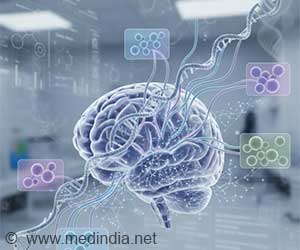Deep brain stimulation implant in the frontal brain regions helps improve cognitive, behavioral, and functional abilities in patients with Alzheimer's disease.
- Deep brain stimulation implant can slow down the symptoms of Alzheimer’s disease.
- The device similar to a cardiac pacemaker is implanted into the frontal lobes of the brain.
- The procedure helps reduce disease progression and improves problem-solving and decision-making skills in early-stage disease patients.
TOP INSIGHT
Pacemaker implanted into the brains of Alzheimer’s patients can reduce the overall performance decline typically associated with early-stage disease.
In this study, deep brain stimulation (DBS) is used to modulate the brain’s frontal lobe’s neural networks which are responsible for problem-solving, organizing and planning, and judging abilities. By stimulating this region of the brain, the cognitive and daily functional abilities of Alzheimer's subjects declined more slowly than in Alzheimer's patients who were not treated with DBS. The implant is similar to a cardiac pacemaker except for the fact that it is surgically implanted into the brain and not the heart.
While the procedure is invasive, the research team is looking forward to developing non-surgical methods to stimulate the frontal lobe, which could slow down the symptoms of Alzheimer's disease in a less invasive manner.
The Success Story
The pilot scale study to test the effect of neuromodulation on Alzheimer’s symptoms included three participants. All three showed improvement, including LaVonne Moore, 85, of Delaware, Ohio, who entered the study in 2013. When she entered the study she was not capable of preparing any meal by herself. After two years of deep-brain stimulation she now can independently assemble ingredients and cook simple meals.Moreover, LaVonne is now capable of organizing outings which include arranging transportation and choosing destinations. She could also select her clothes without relying on others choices.
Tom Moore, LaVonne’s 89-year-old husband, says that while his wife’s Alzheimer's disease has progressed, the progression has been much slower than what he had expected. "LaVonne has had Alzheimer's disease longer than anybody I know, and that sounds negative, but it's really a positive thing because it shows that we're doing something right," Moore said.
Alzheimer’s disease
Alzheimer's disease the most common form of dementia affects more than 5 million Americans, and by 2050, this number is expected to rise as high as 16 million, according to the Alzheimer's Association. The progressive neurodegenerative disease causes a steady decline in memory and mental function in affected individuals, drastically reducing their quality of life.- Ohio State Study of Brain Pacemaker Shows Promise in Slowing Decline of Alzheimer's - (https://www.j-alz.com/content/ohio-state-study-brain-pacemaker-shows-promise-slowing-decline-alzheimers)
 MEDINDIA
MEDINDIA





 Email
Email










